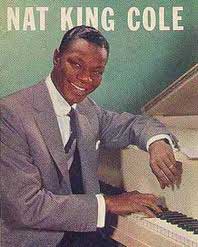
FGF E-Package
The Reactionary Utopian (classic)
March 14, 2012
Celebrity and Mortality
A classic by Joe Sobran
fitzgerald griffin foundation

Toward the end of his all-too-brief life, the great pop singer and jazz pianist Nat “King” Cole phoned his record company. The switchboard operator answered: “Capitol Records, home of the Beatles.” Cole slammed the phone down in disgust.
Understandably. Cole had been one of Capitol’s first great stars, and here the company that owed him so much was identifying itself with four upstart kids from England — who were, by Cole’s standards, hardly musicians at all.
Today, when a Beatle dies, it’s like another Kennedy expiration. The world falls all over itself in fulsome eulogies, as if a great cultural and spiritual light had been snuffed out. When Cole died of cancer in 1965, there was none of the silly fuss we saw last week at George Harrison’s passing. It was just a sad moment; we had lost a classy entertainer, and it was enough to say that.
Nothing against the Beatles, mind you. I never joined in the Harry Potter-scale enthusiasm they inspired in my generation, but I liked them well enough, and they produced a half-dozen or so good songs, tunes that stay with you. Not bad, but nothing great. I long ago quit playing their records, which don’t wear well; whereas I still listen to Cole often.
I always marvel at the way his smoky voice handles standards like “Caravan,” “Ain’t Misbehavin’,” “Don’t Get Around Much Anymore,” “A Cottage for Sale,” “These Foolish Things,” “Once in a While,” “You’re the Cream in My Coffee,” and others too numerous to list. Romantic, polished, witty, singing every note perfectly and endowing every word with meaning, he was a superb interpreter of the finest American pop music. He didn’t always choose the best material, and he was unfortunate in some of his arrangers; but the records he made with his own trio and with Billy May hold up extremely well.
One way to appreciate Cole is to try singing along with him. You’ll quickly realize how deceptively easy he makes it sound. His timing is flawless, he reaches every note without the slightest strain, and he can hold a note indefinitely. His style is as subtle as it is powerful.
And George Harrison? Nice fellow, mediocre musician. We know far too much about his personal life; not that it was disgraceful, merely uninteresting. He dabbled in Hinduism and adopted an air of profundity that never bore fruit in his work; his pseudo-spiritual song “My Sweet Lord,” far from expressing depths of Eastern mysticism, was such an obvious rip-off of the old Motown hit “He’s So Fine” that I wasn’t surprised when he was successfully sued for copyright violation. If he didn’t realize what he was doing, he had no ear for music. He also didn’t have much of a voice.
This sounds harsher than I intend it to. I merely mean that Harrison’s work can’t stand up under scrutiny. Like most rock music, it’s childish. In order to celebrate him, you almost have to talk the kind of nonsense we were hearing so much of last week.
Nat Cole’s personal life was probably far more interesting, but nobody cared much about it, and he liked it that way. He was content to be an entertainer, and he took pride in his work without losing his modesty.
The Beatles were not so much entertainers as celebrities. Everyone knew their music wasn’t meant to be savored, or even listened to; their screaming fans made them inaudible, proving that the music wasn’t the point. Celebrity-worship was.
The adoration they received made them self-important, John Lennon most egregiously. He quickly succumbed to the temptation to make public pronouncements on politics, religion, sex, and art, proving only that he took himself as seriously as his fans did. He became brooding, shocking, and generally as “artistic” as all get-out. It was dramatically apt that he should be shot by a crazed fan.
Pure, distilled celebrity — as the man said, being famous for being famous. The Beatles inevitably broke up, each supposing he could take his share of the group’s fame and be independently interesting. Maybe start a new religion or something. After Beatlehood, the sky’s the limit.
Maybe those of us who have never been Beatles shouldn’t judge them too severely. That degree of celebrity would test anyone’s maturity, never mind four boys in their twenties. Still, we might reflect on the fact that none of Nat Cole’s fans ever tried to shoot him.
The Reactionary Utopian archives
Copyright © 2012 by the Fitzgerald Griffin Foundation. All rights reserved. This column was published originally by Griffin Internet Syndicate on December 6, 2001.
Joe Sobran was an author and a syndicated columnist. See bio and archives of some of his columns.
Watch Sobran's last TV appearance on YouTube.
Learn how to get a tape of his last speech during the FGF Tribute to Joe Sobran in December 2009.
To subscribe to or renew the FGF E-Package, or support the writings of Joe Sobran, please send a tax-deductible donation to the:
Fitzgerald Griffin Foundation
344 Maple Avenue West, #281
Vienna, VA 22180
1-877-726-0058
publishing@fgfbooks.com
or subscribe online.
@ 2025 Fitzgerald Griffin Foundation